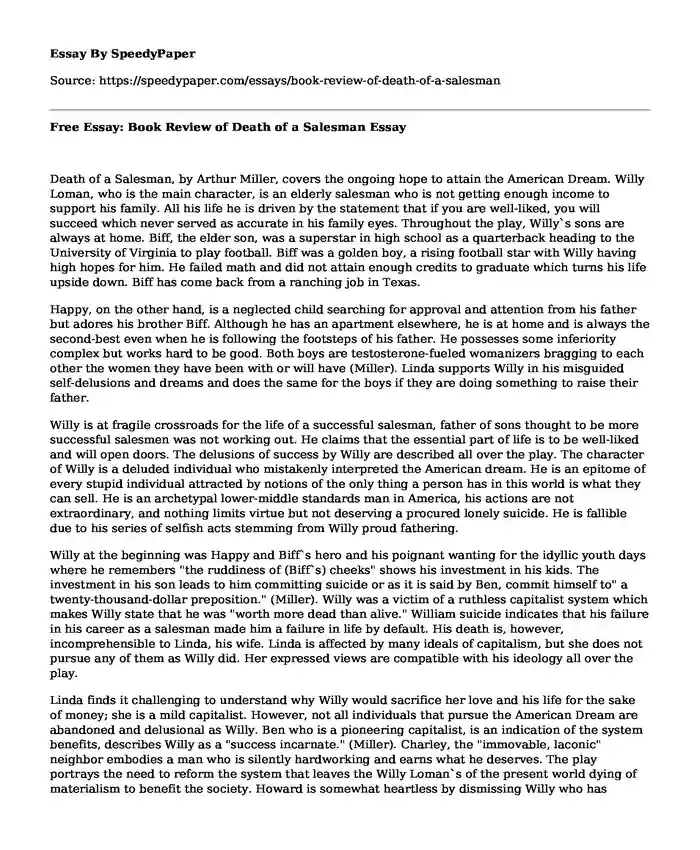"Death of a Salesman" is a powerful and poignant play written by Arthur Miller that delves into the struggles and disillusionment of an aging salesman, Willy Loman. The play explores themes of the American Dream, family relationships, and the consequences of living a life based on false values and aspirations.
The character of Willy Loman is a tragic figure who is constantly haunted by his past failures and unable to come to terms with the reality of his life. His obsession with success and material wealth has ultimately led to his downfall, as he is unable to keep up with the changing times and faces rejection and disappointment at every turn.
Miller's writing is both raw and honest, capturing the struggles and complexities of the human experience with great depth and insight. The play's structure, which moves back and forth in time, adds a layer of complexity to the narrative and allows the audience to see the full scope of Willy's unraveling.
Overall, "Death of a Salesman" is a thought-provoking and emotionally resonant play that continues to be relevant today. It serves as a cautionary tale about the dangers of chasing after an unattainable dream and the importance of finding meaning and fulfillment in one's life beyond material success. Miller's exploration of the American Dream and its impact on individuals and families is both timeless and universal, making "Death of a Salesman" a classic piece of literature that is sure to leave a lasting impression on its readers.

